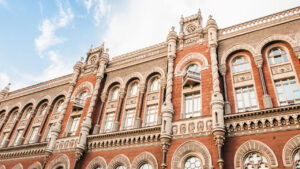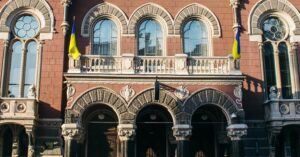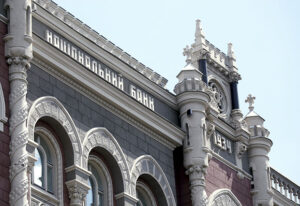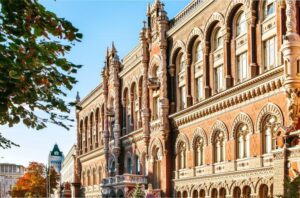
US President Donald Trump has lifted the moratorium on the issuance of new liquefied natural gas (LNG) export licenses imposed by his predecessor Joe Biden. The US Department of Energy reported that it is returning to the normal regime of reviewing export applications in accordance with Trump’s order.
“The Department has been instructed to resume reviewing applications for the export of US LNG to countries that do not have a free trade agreement with the United States. The proper review of export applications is required by law and must be carried out accordingly,” the Energy Ministry said in a statement.
In December, the agency published the results of a study on LNG exports and set February 18 as the deadline for public comments on it. Now the Ministry of Energy has decided to extend the comment period until March 20, 2025.
Earlier, the Experts Club think tank, Brian Mefford and Maxim Urakin, released a video analysis on what changes are expected to occur in US domestic and foreign policy under Trump, the video is available on the Experts Club YouTube channel – https://youtu.be/W2elNY1xczM?si=MM-QjSqGce4Tlq6T
EXPERTS CLUB, EXPORT, GAS, LICENSE, MORATORIUM, TRUMP, URAKIN, Меффорд

PJSC SIC Borshchahivskiy Chemical Pharmaceutical Plant (BCPP, Kyiv) may obtain a license to produce baby food and dietary food products.
As the company reported in the information disclosure system of the National Securities and Stock Market Commission (NSSMC), the issue of obtaining such licenses at the initiative of shareholder Aletber Limited (Cyprus) is on the agenda of the shareholders’ meeting to be held on April 30.
By the end of 2023, BCPP increased production by 17.6% compared to 2022 to almost UAH 1.866 billion, but in physical terms it decreased by 3.3% to 34.8 million packs. At the same time, 40.3 million packs were sold last year, which is 7.8% less than in 2022, while total sales increased by 16.5% to UAH 1.806 billion.
In 2023, BCPP’s net profit increased by 3.38% compared to 2022 to UAH 262.863 million.
As of the first quarter of 2023, 31.8% of BCPP shares were owned by the pharmaceutical company Pharmaceutical Firm “Darnitsa” (Kyiv).
According to the Opendatabot system, the ultimate beneficiaries of BCPP are also the beneficiary of the pharmaceutical company “Darnitsa” Hlib Zagoriy, Yevhen Sova and Tetiana Artemenko.

The National Bank of Ukraine (NBU) has applied a measure of influence in the form of temporary suspension of licenses to non-life insurer “European Insurance Group” (EIG, Kharkiv) in connection with non-submission of reports since the end of last year.
As reported by the central bank on Tuesday, the Committee for Supervision and Regulation of Non-banking Financial Services Markets has set a deadline for the insurer to eliminate violations until September 26, 2023.
According to the National Bank, for the first nine months of 2022, the insurer received 2542.2 thousand UAH of insurance premiums and made 39.4 thousand UAH of insurance payments, while the company’s market share for the period amounted to 0.01%.
As reported, on October 8, 2021 the NBU has agreed to Ivan Volkov indirect ownership of 99,998% of shares of ALC “European Insurance Group”. Earlier, on July 6, 2021, a trustee was appointed to this company to manage 99.998% of the insurer’s shares, the ownership of which was indirectly through LLC “Victori-21”.
UGG was registered by the National Commission for Financial Services in August 2016. The authorized capital of the company amounts to UAH 30 mln.

On July 10, the National Bank of Ukraine has annulled the license of Financial Company Rialto LLC (Kiev) to provide financial services, namely, to lend money, including on financial credit terms.
As reported on the website of the regulator, following the results of an unscheduled inspection on the protection of the rights of consumers of financial services found violation of the financial company of the requirements of current legislation, in particular, the laws of Ukraine “On financial services and state regulation of financial services markets”, “On consumer credit”, as well as a number of regulations of the National Bank of Ukraine.
Rialto FC was registered in June 2020. The authorized capital is UAH 6 mln.

The National Bank of Ukraine (NBU) on May 8 applied to Kyivska Rus Insurance Company PJSC a sanction in the form of temporary suspension of its license to provide financial services in insurance due to failure to submit reports for the first half of 2022 and for 2022, as well as an actuarial report for 2022.
According to the regulator’s website, the company also failed to submit a report on corporate governance and information on the key risks and the results of stress testing for 2022, and failed to provide information and documents requested by the NBU.
The insurer has been set a deadline for elimination of violations till June 8, 2023.
Private JSC “IC “Kyivska Rus” performs activity in voluntary and obligatory types of insurance, other than life insurance.
According to the accounts of the insurer for nine months of 2022 the amount of insurance payments totaled 85,4 mln UAH of which 76,9 mln UAH were paid out by reinsurers. The insurer made no payments during the above period.

On May 5, the National Bank of Ukraine (NBU) has cancelled the licenses of Universal Policy Insurance Company (Kyiv) due to repeated violations of license conditions during the year.
According to the regulator’s website, the company fails to comply with mandatory financial ratios (solvency and capital adequacy ratio and risk operations ratio).
Earlier it was reported that “IC “Universalniy Polis” was subjected to a temporary suspension of the license on November 11, 2022.
The NBU notes that according to accounts for 2022, the amount of insurance premiums collected by the company was UAH 72 million (90% of them – from reinsurers), insurance payments – UAH 36 million. The market share of the company according to the results of 2022 is 0,2%.
According to reports for the first quarter of 2023, “IC “Universal polis” has not received insurance premiums.
IC “Universal polis”, registered in 2001, specializes in providing services in the field of risk insurance.